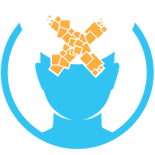Freedom Locomotion System: Difference between revisions
Appearance
No edit summary |
No edit summary |
||
| Line 13: | Line 13: | ||
==Additional Information== | ==Additional Information== | ||
*Caots - | *'''Caots''' - | ||
*Dash Step - | *'''Dash Step''' - | ||
*Blink Step - | *Blink Step - | ||
| Line 21: | Line 21: | ||
*Grab Turning - Allows the user to turn in VR without turning in real life by grabbing and turning the VR environment with the controller. This is very useful for front-facing VR systems such as [[Oculus Rift]] and [[PlayStation VR]]. | *Grab Turning - Allows the user to turn in VR without turning in real life by grabbing and turning the VR environment with the controller. This is very useful for front-facing VR systems such as [[Oculus Rift]] and [[PlayStation VR]]. | ||
*Anti-Boundary Violation - | *Anti-Boundary Violation - When you try to walk through virtual walls, screen will darken and [[Chaperone]] boundaries appear. When you walk over virtual ledge, you will fall in VR. | ||
*Free Climbing - | *Free Climbing - | ||

